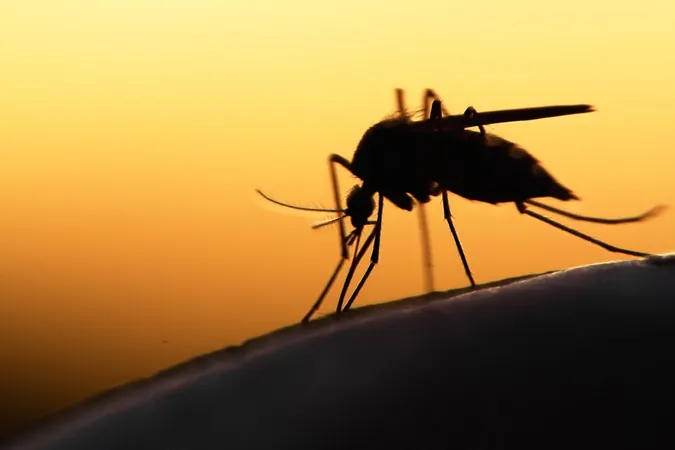
Warning: First Crow in Bruce County Tests Positive for West Nile Virus!
2025-06-12
Author: Emily
Deadly Virus Alert: West Nile Virus Detected!
In a startling turn of events, Grey Bruce Public Health (GBPH) has announced that an American crow found dead in Bruce County has tested positive for the mosquito-borne menace, West Nile virus. This alarming discovery serves as a critical reminder for residents to safeguard themselves against mosquito bites.
The deceased crow was tested on June 6, 2025, marking the first case of WNV positive wildlife in the area this year. Senior public health manager Andrew Barton emphasized, Although the risk remains low for West Nile virus in Grey-Bruce, it’s crucial to take preventative measures against mosquitoes during their peak activity hours, especially at dusk and dawn. He advised using insect repellents containing DEET or incaridin and wearing protective clothing.
What You Need to Know About West Nile Virus
Fortunately, there have been no reported human cases of West Nile virus in Ontario this year. However, last year saw 61 reported cases, resulting in 37 hospitalizations and one tragic death. The virus typically circulates between birds and several mosquito species, multiplying within infected birds and subsequently spreading through mosquito bites.
As part of their surveillance efforts, GBPH has been actively monitoring mosquito populations across municipalities, setting traps from May to September. Thankfully, no infected mosquito pools have been identified so far this season.
Protect Yourself and Your Family!
To fend off mosquitoes and prevent possible infections, the public is encouraged to:
- Wear light-colored long sleeves, pants, and socks when outdoors.
- Eliminate standing water around your home, which serves as breeding grounds for mosquitoes.
- Take extra precautions at dusk and dawn when mosquitoes are most active.
- Ensure that doors and window screens are properly fitted and free from holes.
Although most people infected with WNV experience mild symptoms, such as fever and headache, serious complications can arise—particularly in individuals over 50 or those with chronic health conditions.
What to Do if You Find a Dead Bird?
If you encounter a dead bird, don’t hesitate to reach out to the Canadian Wildlife Health Cooperative at 1-866-673-4781 for guidance.
For those keen on understanding more about West Nile virus, Ontario Public Health has rolled out a comprehensive Vector-Borne Disease Tool. This tool is packed with vital data on mosquito surveillance and WNV.









 Brasil (PT)
Brasil (PT)
 Canada (EN)
Canada (EN)
 Chile (ES)
Chile (ES)
 Česko (CS)
Česko (CS)
 대한민국 (KO)
대한민국 (KO)
 España (ES)
España (ES)
 France (FR)
France (FR)
 Hong Kong (EN)
Hong Kong (EN)
 Italia (IT)
Italia (IT)
 日本 (JA)
日本 (JA)
 Magyarország (HU)
Magyarország (HU)
 Norge (NO)
Norge (NO)
 Polska (PL)
Polska (PL)
 Schweiz (DE)
Schweiz (DE)
 Singapore (EN)
Singapore (EN)
 Sverige (SV)
Sverige (SV)
 Suomi (FI)
Suomi (FI)
 Türkiye (TR)
Türkiye (TR)
 الإمارات العربية المتحدة (AR)
الإمارات العربية المتحدة (AR)